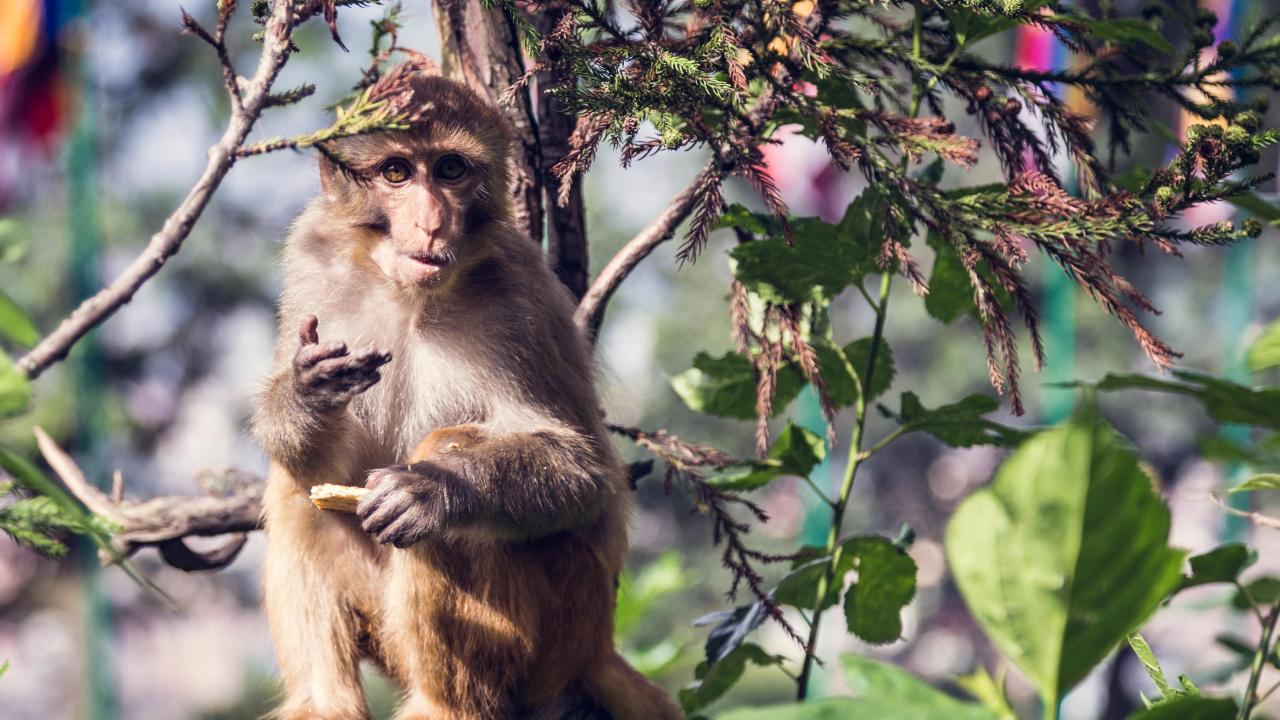
NEW PUB: Sylvatic Transmission of Chikungunya Virus among Nonhuman Primates in Myanmar
New publication led by OHI's Dr. Tierra Smiley Evans highlights the importance of conducting surveillance of peri-urban primates in regions of high arbovirus transmission
Myanmar is among the least studied but most heavily forested region in Asia, and CHIKV, ZIKV, DENV and JEV are highly endemic in humans. Scientists investigated whether Myanmar peri-urban primates, living near the largest urban city of Yangon, are exposed to arboviruses of public health concern and could be sources of spillover or recipients of spillback of human pathogenic arboviral diseases.
Nonhuman primates living in proximity to humans increase risks for sylvatic arbovirus transmission. Teams collected serum samples from nonhuman primates in Hlawga National Park near Yangon, Myanmar, and detected antibodies against chikungunya (33%) and Japanese encephalitis (4%) viruses. Buffer zones between primate and human communities might reduce cross-species arbovirus transmission.
OHI co-authors include Tierra Smiley Evans, Ohnmar Aung, Olivia Cords and Christine Kreuder Johnson
Published in Emerging Infectious Diseases
